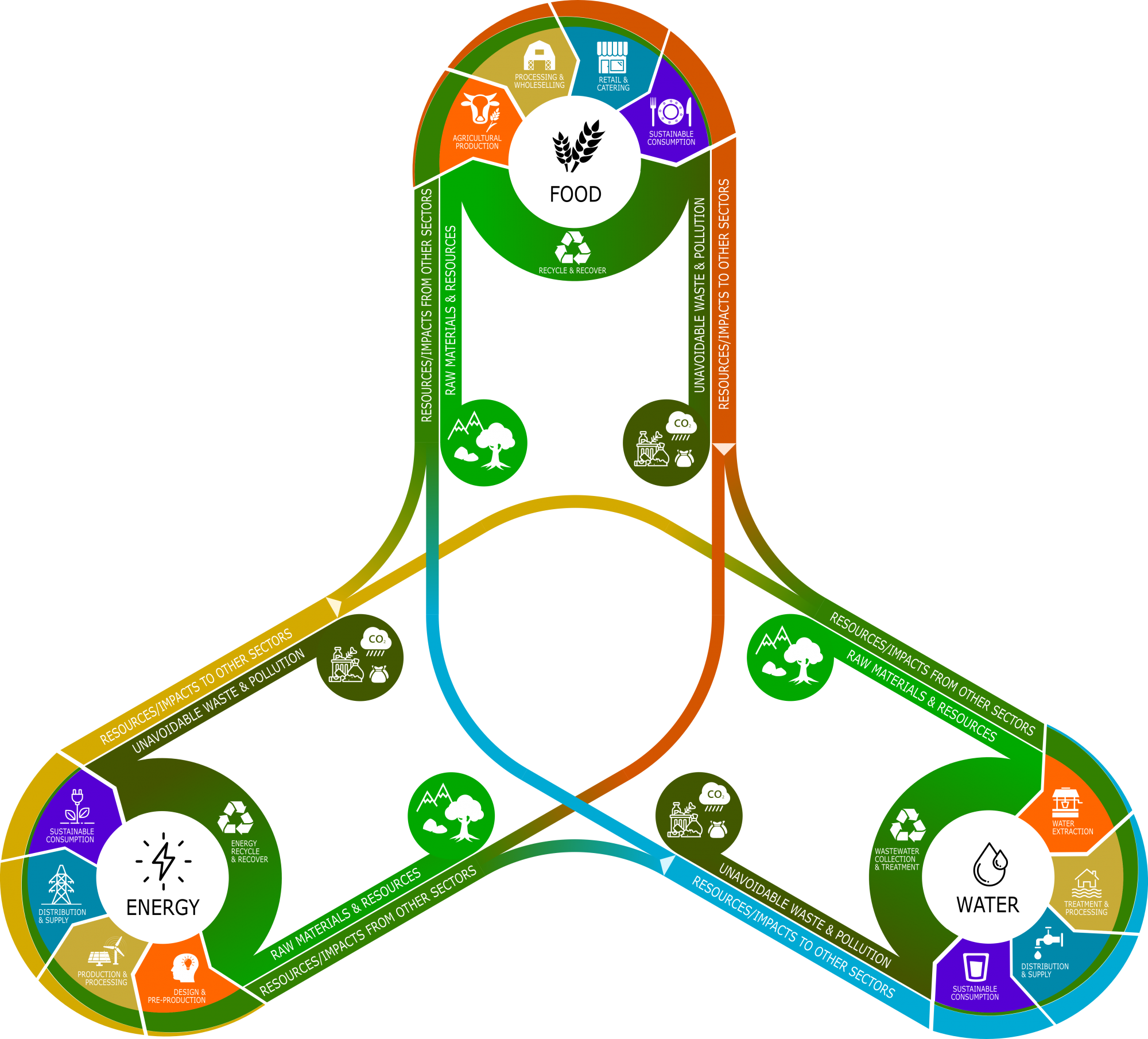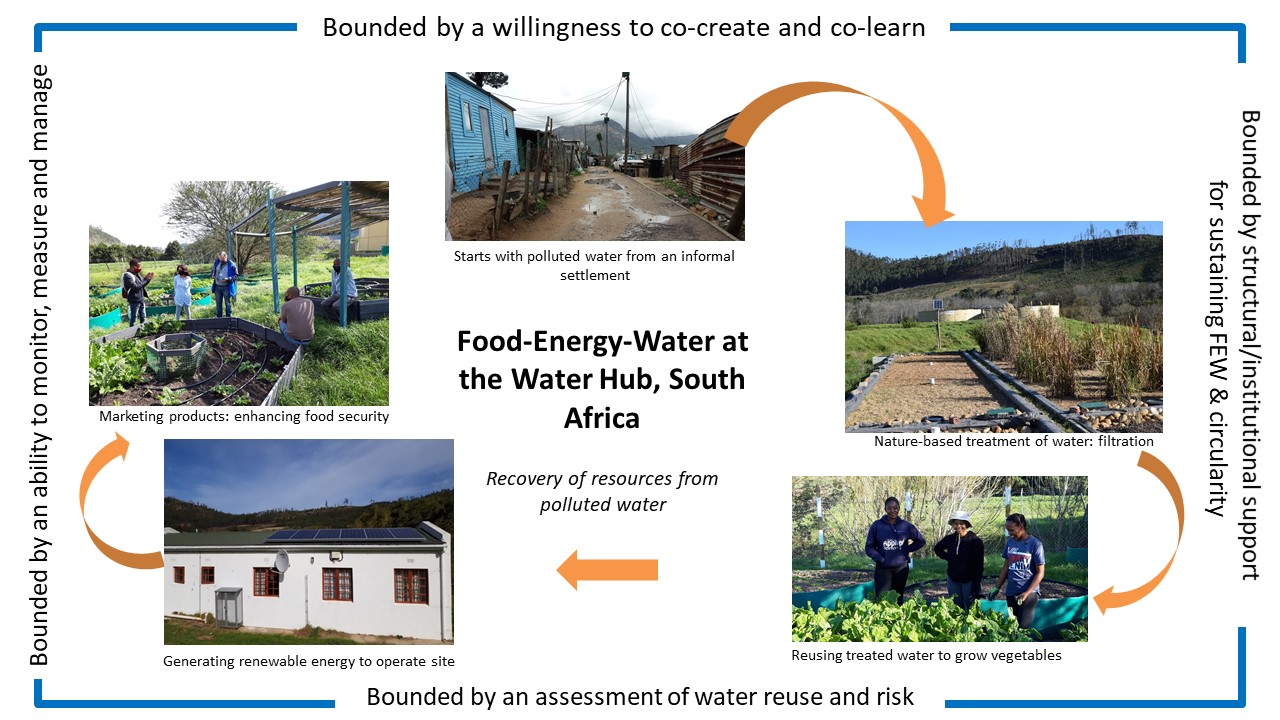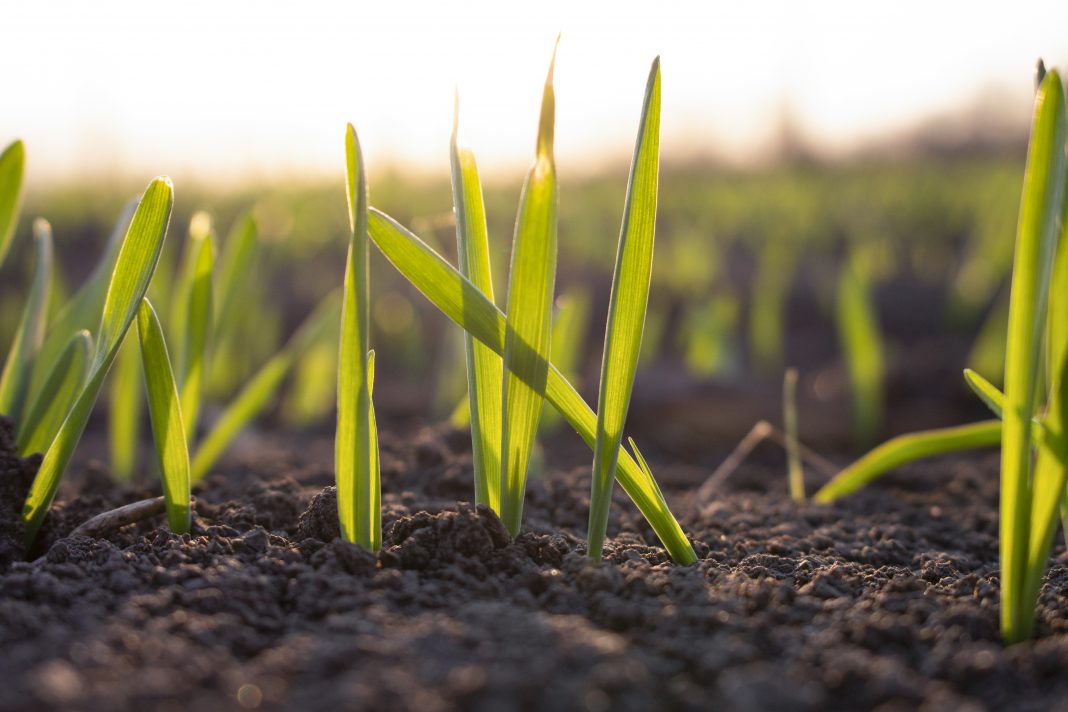Jana Fried, Adina Paytan and Waste FEW ULL project participants look at lessons from the Waste FEW ULL project for reducing waste and increasing efficiency in the FEW nexus
Water, food, and energy systems are providing fundamental services for human wellbeing. However, the current management of these systems is often wasteful, creating inefficiencies that need to be urgently addressed to reduce the over-consumption of our limited natural resources.
Opportunities for such reductions lie not just in the decrease of global consumption and the refocus on circular economy but also in addressing specific inefficiencies at the interface of food-, water- and energy systems. Here, nexus thinking as an approach that considers waste outputs from one system as resource input into another has been identified as a pathway to develop more integration across these systems to reduce waste and to ensure sustainable and equitable food-, water- and energy security.
Using waste outputs to develop more sustainable food-, water- and energy security
However, integrating such complex systems is not a straightforward undertaking and, importantly, needs to also consider access, distribution, and equality.
Some of the challenges of achieving a transition towards greater FEW nexus integration are the different domains occupied by respective food-, water- and energy-sector-related production, processing, transport and consumption which are influenced by sector-specific actors, different regulatory and management frameworks, and specialised social and infrastructure networks.
Given the disconnect in the management of food-, water- and energy systems, it is more likely for nexus integration to occur where these systems ‘meet’ at the same scale e.g., within the ‘urban FEW metabolism’ (Newell et al 2019). Specifically, under- standing different pressures and opportunities in distinct urban contexts is important for identifying processes by which cities can identify, test and scale viable and feasible solutions that reduce the most pressing inefficiencies in each context.
Waste FEW ULL and urban living labs
Waste FEW ULL, a Belmont Forum funded project, develops methods for identifying inefficiencies in a city- region’s food-energy-water nexus and evaluates how nexus connections can be harnessed for reducing these inefficiencies. An international network of Urban Living Labs (ULL) in four regions – UK (Bristol), Netherlands (Rotterdam), South Africa (Western Cape) and Brazil (São Paulo) – pro- vides diverse local to regional test beds for nexus transitions that enable incorporating place-specific contexts and local knowledge and providing opportunities for an equitable and just transition (Stringer et al. 2014; Allouche et al. 2019; Johnston & van de Wiel 2021).

The Waterhub ULL is located at Langrug, an informal settlement at the outskirts of the wine-farming town Franschhoek, South Africa. The 7000 inhabitants of Langrug are affected by widespread poverty, food shortage, and lack access to electricity, water, and wastewater services. Working towards a nexus-based transition, the Waterhub is an experimental site where academics and local community members come together to investigate in a Living Lab setting low-cost and low-tech sustainable opportunities of treating wastewater to recover valuable nutrients for local community-based food production and prevent river water pollution. The adopted integrative approach has demonstrated positive results that have the potential to be rolled out in similar settings and to empower disadvantaged communities across Africa and elsewhere.
At the ULL BlueCity010 in Rotterdam, the Netherlands, research focuses on circular economy, including in the food catering sector, in a city that has prioritized sustainability transitions. Through the reduction and repurposing of food waste within the catering sector (e.g., coffee grounds for mushroom growing), reductions in energy and water demand can also be achieved. The Rotterdam ULL identified 15 principles for integrating innovations into broader mainstream practices (Greer et al., 2020), highlighting the viability of, and necessary conditions for, mainstreaming experimentation to shape integrated nexus approaches.

Green cities with sustainable frameworks
Continuing with cities where sustainability is high on the local government agenda, the ULL in Bristol a pioneering green city, involved collaborative efforts between energy-, food-, water- and waste agencies and academics to identify food waste inefficiencies to support the city’s (successful) efforts to receive the Gold Sustainable Food City award. Results emerging from the Bristol ULL emphasise that greater reductions in inefficiencies are achieved when food waste creation is avoided rather than to recycle food waste (e.g. in anaerobic digesters). (Eaton et al 2022). However, the current food system strongly incentives food waste creation hence there is a need to rethink the food waste hierarchy (Parsa et al, 2021b).
The largest of our Living Labs, the São Paulo ULL, focuses on designing decision support and foresight tools, building situation arenas for sustainability transitions, and fostering relationships and networks between FEW nexus agents to design robust urban sustainability policies that incorporate nexus approaches. Highlighting the need for constant active involvement and support of a broad range of FEW nexus stakeholders (including policy makers, food producers and marketing, social enterprises, educational services, and sustainable rural tourism), the São Paulo ULL has established community networks that make collective, sustainability-oriented decisions. This includes tools that help identify more sustainable choices to support, for example, the transitioning from conventional to agroecological production (Soares Dal Poz et al 2022).
Urban areas and their role in sustainability
Waste FEW ULL’s work demonstrates the important role that the specific context of urban places can play for sustainability (and nexus) transitions. Even though global and national policies enabling transition processes within the food-energy-water nexus are important, acknowledging, understanding, and responding to regional and local place specificity can act as a catalyst to successfully implement and mainstream integrated FEW nexus approaches.
Effective interventions that consider the local context can make the reduction in FEW nexus inefficiencies much more achievable.
Further Reading
- Newell, J.P., B. Goldstein & A. Foster (2019). A 40-year review of food– energy–water nexus literature and its application to the urban scale, Environ. Res. Lett. 14, 073003.
- Parsa, A., M.J. van De Wiel, U. Schmutz (2021a). Intersection, interre- lation or interdependence? The relationship between circular economy and nexus approach, Journal of Cleaner Production, Vol 313, 127794, ISSN 0959-6526, https://doi.org/10.1016/j.jclepro.2021.127794.
- Stringer, L. C., C. H. Quinn, R. J. Berman, et al. (2014). Combining nexus and resilience thinking in a novel framework to enable more equitable and just outcomes. Sustainability Research Institute Paper, 73.
- Allouche, J., C. Middleton & D. Gyawali (2019). The Water-Food-Energy Nexus, Power, Politics and Justice. Routledge, 10.4324/9781315209067.
- Johnston M. & Van De Wiel, M.J., 2021. The Bristol Waste Economy: Insights from Social Network Analysis and Agent-based Modelling. WASTE-FEW-ULL Conference 2021, Bristol.
- Greer, R., von Wirth, T., & Loorbach, D. (2020). The waste-resource paradox: Practical dilemmas and societal implications in the transition to a circular economy. Journal of Cleaner Production, 267, 121906.
- Eaton E., A. Hunt, A. Di Leo, D. Black, G. Frost & S. Hargreaves (2022) What Are the Environmental Benefits and Costs of Reducing Food Waste? Bristol as a Case Study in the WASTE FEW Urban Living Lab Pro- ject. Sustainability, 14 (5573), doi.org/10.3390/su14095573.
- Parsa A., M.J. van De Wiel & U. Schmutz (2021b). Dynamics Modelling of Food Waste Impacts on Food-Energy-Water-Climate Nexus in Bristol. WASTE-FEW-ULL Conference 2021, Bristol.
- Dal Poz, M.E., P. S. de Arruda Ignácio, A. Azevedo, E. C. Francisco, A. L. Piolli, G. G. da Silva and T. P. Ribeiro (2022). Food, Energy and Water Nexus: An Urban Living Laboratory Development for Sustainable Sys- tems Transition. Sustainability. 14(12), 7163.

This work is licensed under Creative Commons Attribution-NonCommercial-NoDerivatives 4.0 International.


